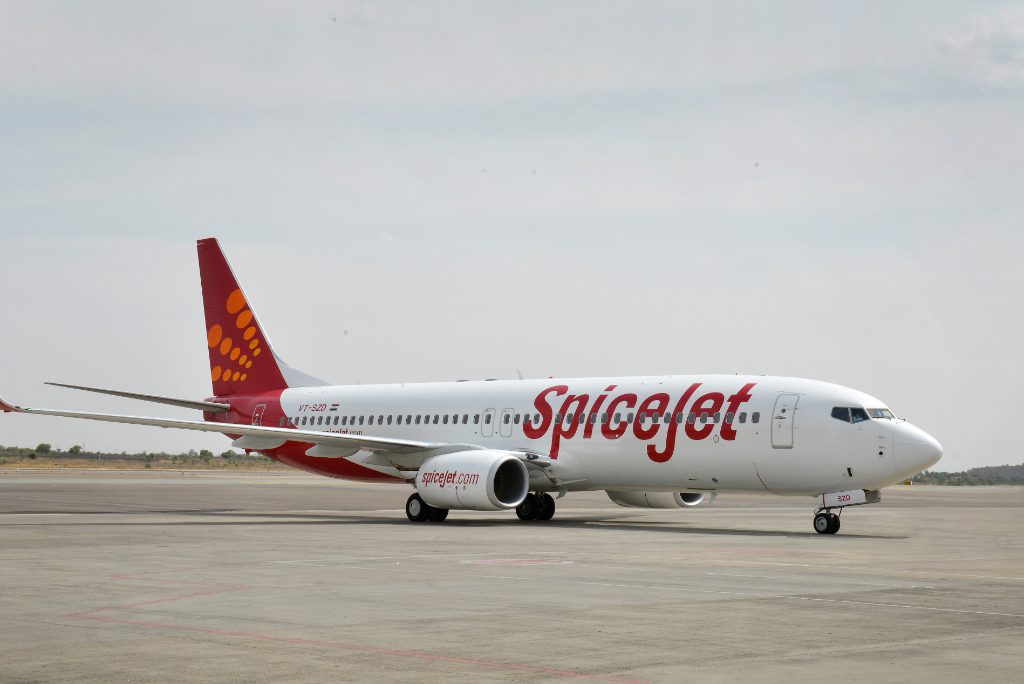Skift Take
SpiceJet has championed reforms of airport processes that have already changed how all air travelers in India fly on all airlines. In a move reported here first, the budget carrier will begin to sell some of the tech it has developed to other airlines.
Indian budget airline SpiceJet doesn’t grab the big headlines, given that it’s overshadowed by state-owned Air India. Yet a look at how SpiceJet has expanded its software development work and hired more engineers — including its acquisition last week of the tech consultancy Travenues — tells a broader industry story.
Low-cost carriers worldwide face daunting challenges, and SpiceJet, India’s second-largest airline by passengers flown, illustrates some of the ways to respond to the crisis. It has reduced staff interactions with passengers at airports to ensure social distancing, and it has revved up its operational efficiency during a time of reduced revenue.
“We took the opportunity that the pandemic provided to do a lot of innovation not just for SpiceJet but for aviation in India, in general,” said Ashish Vikram, chief technology and innovation officer.
Reducing crowds at airports is critical to ensuring social distancing as air travel recovers. SpiceJet and other airlines have been working with airports and authorities to adapt to new pandemic-related procedures, called SOPs. The procedures co-drafted by all airlines and the government through an iterative and consultative process.
SpiceJet’s story illustrates the changes: India hadn’t allowed mobile boarding passes before, instead requiring airport security officials to stamp paper passes. Now mobile passes are mandatory, which reduces in-person interactions.
They streamlined check-in, too. Rather than require passengers to check in within 24 hours of a flight, SpiceJet now lets people check in whenever they book their tickets. SpiceJet used to charge to select specific seats. But that had the unintended side effect of discouraging online check-ins. So they got rid of the fees.
“We’re introducing online check-in via WhatsApp, a messaging app most Indians prefer using, though we also offer check-in by SMS [text-message],” Vikram said. The airline matches a customer’s account to their phone number to confirm their identity.
Cellular internet coverage can sometimes be spotty in India, and WhatsApp or text messages can often prove more stable than sites and apps. The airline also sends its security procedure questionnaire digitally, avoiding the need for in-person touching of kiosks at the airport.
SpiceJet lengthened its window for online check in to up to 45 minutes before a flight closes. Before, it used to require check-in via its site or app two hours before departure.
“The whole concept of check-in is completely unnecessary in today’s day and age,” Vikram said. “The idea you can’t cancel a flight after you’ve checked in and have to un-check-in first, it’s ridiculous. It’s only in the airline world. But we’re not able to wholly get rid of it yet.”
On the security front, Vikram said a smartphone is as good as paper. A person needs to unlock a phone and use a phone number that the airline can match with its database, which is an adequate form of so-called “two-factor authentication.”
The airline worked with officials to reform the process for checking bags, too. Rather than insist that a passenger keep a paper claim tag for a bag they check, passengers now receive a receipt by text message. Rather than wait to see if their suitcase fits weight limits, passengers drop their bags off. If their bag turns out to be over a weight threshold, the airline will send a text prompting them to pay a fee at the boarding gate by scanning a QR code placed there.
All these steps have been reducing crowded chokepoints in airports. But they have required SpiceJet and other airlines to tune up their customer-facing tech to accommodate the new procedures as they have less staff interacting in person. For example, SpiceJet launched a chatbot to help field questions from passengers via text-message (SMS), or WhatsApp, or a formal chatbot interface on its site and app.
SpiceJet to Sell Its Tech Products to Other Airlines
Earlier this week, SpiceJet aqui-hired the team and technology of subsidiary Travenues, a Bengaluru-based airline technology company that had built several products for airline e-commerce. The companies didn’t disclose the terms of the deal. Travenues was a business-to-business subsidiary of Ixigo, a mobile booking travel app.
The move represented the latest in a series of tech moves by SpiceJet and took place against a global backdrop of airlines laying off employees as revenues struggle to rebound.
SpiceJet is building a business-to-business services unit that will provide white-labeled versions of its tech to other airlines. Vikram said one airline in the U.S. and one in Europe are early customers. But he declined to give names or details, saying that his colleagues are still working on the marketing plan.
“Most airlines outsource some of their tech to companies in India and elsewhere,” Vikram said. “We’re entering that market with a few products we developed in-house for other carriers.”
SpiceJet’s tech journey is part of a broader turnaround story. SpiceJet chairman and managing director Ajay Singh, who controls a majority share of the carrier and rescued it from collapse in 2014, sees an opening for SpiceJet to grab share during the eventual recovery. Singh wants to fill a gap left by Jet Airways, which collapsed last year. Before the pandemic created aviation chaos, SpiceJet had about 16 percent share of the Indian flight market, it said, with a goal of grabbing more share. For more analysis of the aviation sector, subscribers can turn to Skift Airline Weekly.

Ashish Vikram, Chief Technology and Innovation Officer, SpiceJet. Source: SpiceJet.
In September 2019, Singh tapped Vikram to overhaul its digital effort. Vikram came to the sector with a software development background and was new to travel. He’s been creating a team of engineers and instilling best practices in code development.
SpiceJet has been expanding its team of data scientists. This team will tackle varied challenges, such as predicting when aircraft parts will fail and managing maintenance schedules more efficiently. They’ll also attempt to forecast how to upsell customers on additional services.
“We’ve been reducing our overall IT costs because the new processes are more cost-efficient,” Vikram said. “When we reduce the use of kiosks at airports, that saves money. When we bring tech in-house, it reduces costs.”
The airline is also rolling out a revamp of its website, which is in beta-testing now. It will offer a traveler the ability to stay logged in to the airline’s site, reducing friction in the user experience.
“When you visit our site, we’ll recognize you when you arrive and will be able to offer relevant information right away, depending on what your most frequent routes are or what seat you are in on a particular flight,” Vikram said.
The company is building tech to help with operations.
“We have a team of revenue managers who do a lot of manual work for setting fares,” Vikram said. “We’ll provide them with data to help automate some of their processes and even help suggest some pricing using AI [artificial intelligence].”
Vikram said the company’s transformation includes a change in the processes for how it develops software, how it hires engineers, and how it brings in-house critical processes.
“We’re adopting the agile technique for software development,” Vikram said, “It helps us make sure we deliver projects on time much more often and that what we’re building is in line with business needs.”
Some parts of the aviation process, like reservation systems or walkie-talkie-based communication systems, are too daunting for Vikram to try to change because they involve third-parties and bureaucratic complexity.
For example, to help with processing bags, an airline has to send messages to the airport via Teletype.
“It’s like using Morse code,” Vikram said, audibly exasperated.
Skift India Report
The Skift India Report is your go-to newsletter for all news related to travel, tourism, airlines, and hospitality in India.
Have a confidential tip for Skift? Get in touch
Tags: airline technology, airlines, artificial intelligence, check-in, check-ins, checked bags, checked luggage, india, mobile apps, spicejet
Photo credit: A SpiceJet Boeing aircraft in India. SpiceJet
